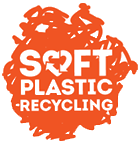Soft Plastic Recycling Scheme submits on Government's consultation on hard to recycle and single use items
The Soft Plastic Recycling Scheme (SPRS) currently has 92 members which fund the collection, baling, transportation and processing of post-consumer soft plastic materials. The scheme has grown its membership by 46% since 1 January 2020. The SPRS SUPPORTS IN PRINCIPLE the intent of the Ministry for Environment’s proposal to address “hard to recycle” packaging.
However, technological advances in recycling plant and collection systems mean that packaging that is currently “hard to recycle” may not be so in the future. The scheme’s focus is on soft plastic materials which are not currently collected at kerbside in New Zealand however there are already trials in New South Wales for kerbside collection of soft plastics via an industry led project with Nestle and Australian Recycler iQ. We are also working with companies that are involved in New Zealand Research and Development and part of global trials to convert plastic into oil and to use plastic as a feedstock for new generation finished projects.
COVID-19 has reinforced the need for packaging to protect and preserve products. In stores, consumers are choosing single use plastic bags for their produce and bakery and we therefore question the inclusion of these products in the proposed “phase out” when there is an effective recycling scheme in place. The SPRS DOES NOT SUPPORT the phase out of single use bags under 70 microns thick without handles for carrying fruit or vegetables. This packaging can and is being recycled and banning it may create more waste if there was a shift to bags over 70 microns which we have seen with the single use plastic carrier bag ban or if other materials such as paper are introduced which may increase the amount of paper waste.
We note that the consultation paper acknowledges that LDPE (4) is mainly used for making soft plastic and is difficult to replace with other materials. We also accept secondary materials which are encompassed within resin 7. The SPRS does not agree that any packaging which meets its recyclability criteria should be “phased out” or banned. The definition of “other” resin #7 is broad and includes materials which we are able to recycle in a blended mix. Manufacturers choose these multiple layer products for specific functionality.
The SPRS does not cover either Polystyrene or PVC as these products are not accepted by our processors.
The SPRS supports the NZ Food & Grocery Council’s research to quantify how much plastic is consumed annually by resin type. The consultation document refers to having assessed “costs” however without understanding current consumption patterns and how many manufacturers are using resins which will be “banned”, it is impossible for the Ministry to say it has assessed the costs.
However, in Australia, the Australian Packaging Covenant Organisation (APCO) reports that PVC consumption reduced by 25% in 2019 compared to 2018 and EPS reduced by 26% over the same period. This demonstrates that industry is phasing out these plastic resins on a voluntary basis. This voluntary action is also happening in New Zealand.
The Consultation Paper was released in August, six months into the COVID-19 pandemic and yet makes no mention of seeking to understand how the economic constraints on industry will be intensified through this legislation. The SPRS considers that a full economic assessment is required before product bans are introduced. We DO NOT AGREE with the proposal to only take forward one Option, Mandatory Phase Out. We consider that other options, working together over time will reduce and where necessary eliminate “hard to recycle” plastics without placing undue costs on New Zealand businesses. Plastic Packaging has been declared a Priority Product requiring mandatory product stewardship and as such we believe should be an alternative option for consideration.

